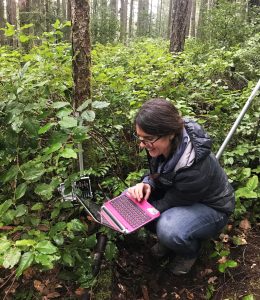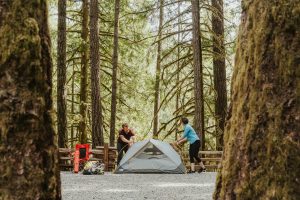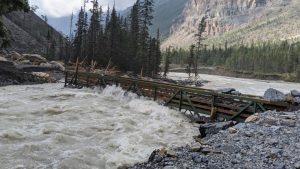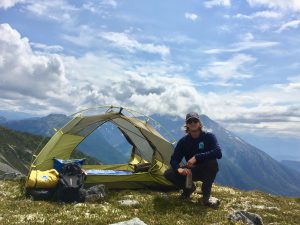Studying the Impacts of Climate Change on Local Plant Species
Categories:

The BC Parks Living Lab Program has been supporting researchers to monitor climate change impacts on local plant phenology – the timing of seasonally reoccurring events such as bud break, leaf size, flower development, and ripe fruit – in Bowser Ecological Reserve and Koksilah River Provincial Park on southeastern Vancouver Island. By monitoring the phenological development of different coastal plants, and by analysing with site microclimate data, researchers can identify potential changes in the growing seasons of southeastern Vancouver Island’s ecosystems.
Since 2017, we have been recording phenological changes in native plant species at Milner Gardens & Woodland, Thetis Lake Regional Park, and on Mount Arrowsmith. With support from the BC Parks Living Lab Program, the research team was able to establish new sites at Bowser Ecological Reserve and Koksilah River Provincial Park in 2020.
In late summer 2020, the research team installed equipment at the new BC Parks sites, including time-lapse cameras and a microclimate station to link phenological records to local climate. Species were chosen that are common throughout low elevation forest ecosystems on southeastern Vancouver Island including red huckleberry, salal and western hemlock. Study specimens that appeared healthy and vigorous enough to survive the duration of the project and that were representative of the current, suitable growing conditions, were selected. Time-lapse field cameras were deployed and aimed at each study specimen to capture all phases in the plant’s life cycle through the growing season. The microclimate station logs hourly data year-round from soil moisture and temperature sensors at 30 cm below ground surface and air temperature, relative humidity, solar radiation, wind speed and direction, and precipitation sensors above ground surface. Microclimate data will be coupled with modelled climate change projections, and will be analyzed to project potential impacts to species productivity and ecosystem composition over time.

In 2021, the field cameras were deployed again in early March to capture a second full year of data. Two Vancouver Island University students were hired to interpret plant phenology observations from the field camera photos, as well as quality check the microclimate data. The research team also completed a preliminary microclimate data and red huckleberry leaf onset and fall phenology comparison between the existing research sites and the new BC Parks sites. The team identified some interesting trends between and across all the sites, including the onset of fall phenology much earlier than previous years. This could be one of the impacts of the heat dome that was experienced across BC in summer 2021. Recent extreme weather events reinforce the importance of monitoring plant phenology and microclimate to ensure we capture the response of plants and to understand how plants may respond to projected warmer, drier conditions. We continue to collect and analyse the data to develop baseline microclimate – phenology relationships in order to project potential impacts to plant growth and survival with climate change.




